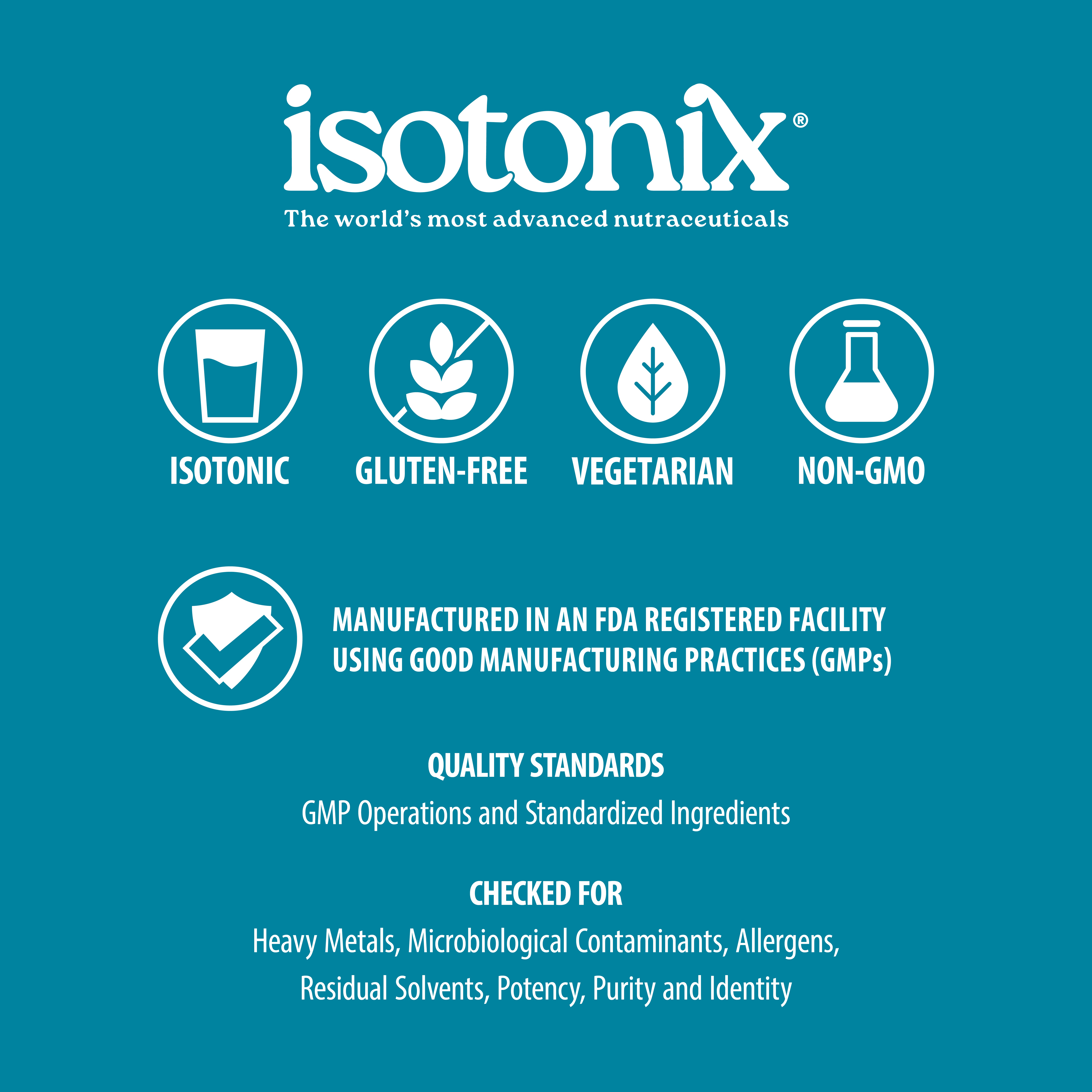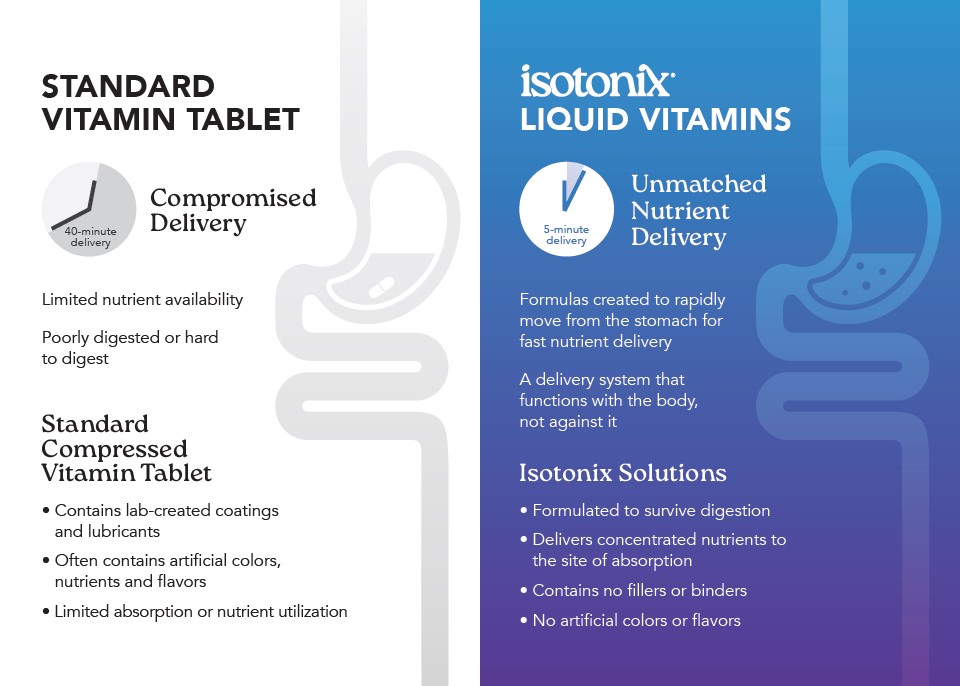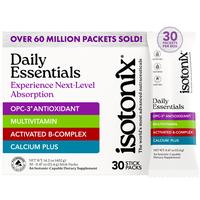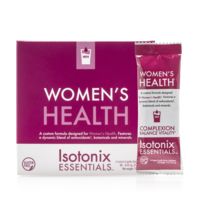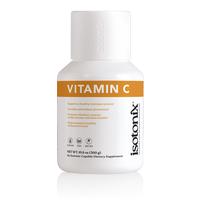Discover a new you with a healthy lifestyle change

Isotonix® Calcium Plus
sku 13020
$25.95
$ 0.52 Cashback
This product qualifies for free or reduced cost shipping. Learn More
Primary Benefits* of Isotonix® Calcium Plus
Essential building block for maintaining strong bones, healthy teeth and gums
- Supports skeletal health
- Promotes normal regulation of enzyme and hormone production
- Supports cardiovascular health
Additional benefits
- Adequate calcium and vitamin D as part of a healthful diet, along with physical activity, may reduce the risk of osteoporosis in later life
- Plays a critical role in the normal contraction of skeletal and heart muscles
- Supports normal muscle use and performance
- Helps to maintain healthy immune functions and general wellbeing
- Helps maintain healthy cholesterol levels
- Supports proper nerve conduction
- Promotes normal hormone secretion
- Helps to ease the discomfort of PMS
- Promotes normal blood clotting
- Supports healthy blood sugar levels
- Supports healthy body weight
- Supports healthy pregnancy and fetal development
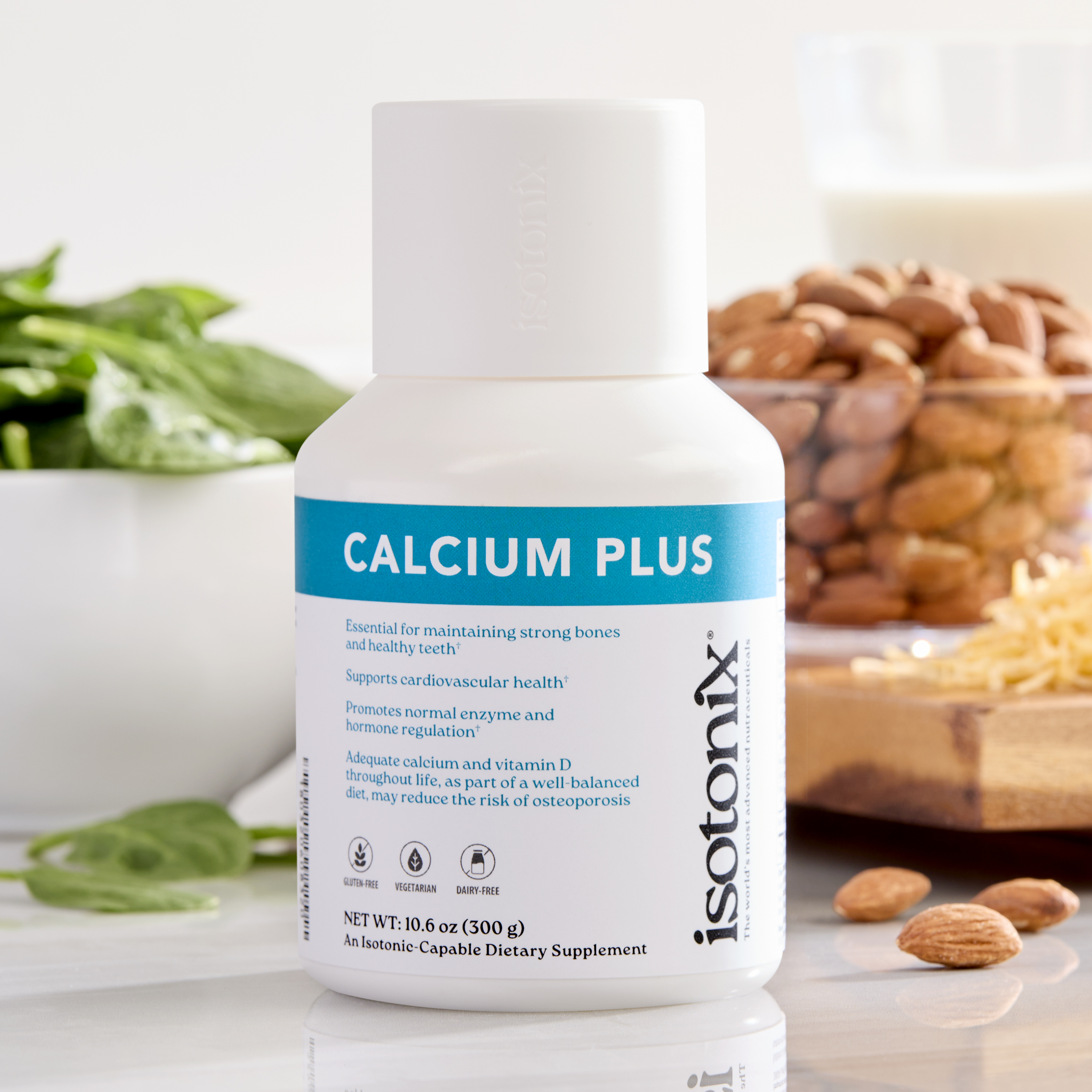
Maintain Your Frame
What Makes Isotonix Calcium Plus Unique?
Calcium is essential for building and maintaining strong bones. Isotonix® Calcium Plus provides the body with an optimal blend of calcium, vitamin D3, magnesium, vitamin C and boron in an efficient isotonic solution that is readily absorbed by the body. Isotonix dietary supplements are a replica of the body's own fluids, such as tears, plasma and breast milk. All fluids in the human body have a certain concentration, which is called the osmotic pressure. The body's common osmotic pressure, which is isotonic, allows a consistent maintenance of all body tissues. In order for a substance to be used in the body's metabolism, it must be changed to the isotonic state.
The efficiency of absorption is also affected by the digestive system. All substances that are used in the stomach go through a degradation process (breakdown) before they can be passed through the opening from the stomach to the small intestine to allow absorption. The digestive process can cause substances to lose some nutritive value, and this whole process takes time! The secret of the isotonic process is probably now becoming clear! When an isotonic substance enters the body, it will be absorbed into the bloodstream rapidly. With isotonic fluids, little nutritive value is lost making the absorption of nutrients highly efficient. There is nothing artificial about it. An isotonic fluid is nature's own nutrient delivery system.
Isotonix Calcium Plus paves the way for powerful results since it is in an isotonic form rather than a tablet. Calcium in tablet form is difficult for your body to absorb. People may fail to absorb tablet calcium supplements because the calcium supplement is not blended with vitamin D and magnesium; these are necessary to aid in the absorption and use of calcium. Even if the calcium tablet is blended correctly, it may be difficult for the body to utilize or break down the calcium. One explanation may be that many calcium brands use calcium from eggshell or oyster shell. These may not be well absorbed by the body. Another reason calcium may not be absorbed from a tablet is because of DCP, which is a binding agent used to hold the tablet together. DCP does not break down in the body.
In addition to binders, some calcium supplements may have additives such as chlorine and other chemicals. Even assuming no binders are used in the calcium tablet, the body must still break down a hard-pressed tablet into a usable form. If the tablet cannot be broken down sufficiently in the stomach, then the calcium will not be absorbed. If you can't break down the calcium, your body is robbed of the calcium needed to support bodily functions. Ordinary calcium tablets require stomach acid to dissolve their compounds, but Isotonix Calcium Plus has no need of stomach acid to be utilized. It delivers an efficient calcium solution that is more readily absorbed by the intestine. Its natural orange-mango flavor is preferable to the chalky taste of typical chewable calcium wafers or tablets.
Many calcium supplements exist in the marketplace, but only Market America's Isotonix Calcium Plus delivers a potent package of calcium and complementary nutrients through an isotonic system of delivery. This translates into a lower cost overall when compared to calcium supplements in pill form by making more of the active ingredients available to the body. Don't be misled by ingredient amounts. What really counts is the amount of active ingredients that your body can ultimately use.
*These statements have not been evaluated by the Food and Drug Administration. This product(s) is not intended to diagnose, treat, cure or prevent any disease.
Product Classifications
Gluten-Free - The finished product contains no detectable gluten (<10ppm gluten)
No Detectable GMOs - The finished product contains no detectable genetically-modified organisms
Vegetarian - This product is vegetarian
Isotonic-Capable Drinkable Supplements - Easy-to-swallow supplements in liquid form are immediately available to the body for absorption
Quality Standards - GMP Operations and Standardized Ingredients
Checked For: Heavy Metals, Microbiological Contaminants, Allergens, Residual Solvents, Potency, Purity and Identity
Isotonix Delivery System
Isotonix - the World's Most Advanced Nutraceuticals
Isotonic, which means “same pressure,” bears the same chemical resemblance of the body’s blood, plasma and tears. All fluids in the body have a certain concentration, referred to as osmotic pressure. The body’s common osmotic pressure, which is isotonic, allows a consistent maintenance of body tissues. In order for a substance to be absorbed and used in the body’s metabolism, it must be transported in an isotonic state.
Isotonix dietary supplements are delivered in an isotonic solution. This means that the body has less work to do in obtaining maximum absorption. The isotonic state of the suspension allows nutrients to pass directly into the small intestine and be rapidly absorbed into the bloodstream. With Isotonix products, little nutritive value is lost, making the absorption of nutrients highly efficient while delivering maximum results.
Key Ingredients
Riboflavin (5-Phosphate)
Riboflavin, is a water soluble vitamin that's primary function is as a coenzyme to support metabolic processes in the body. It promotes healthy red cell formation, nervous system function and also acts as an antioxidant. Another key function of the vitamin is in the production of energy, where it acts as part of the electron transport chain that produces cellular energy. In the mitochondrial electron transport chain, vitamin B2 is an intermediate hydrogen acceptor of foodstuffs, and then passes the electrons onto the cytochrome system, where the cellular energy is produced.
Requirements for vitamin B2 are associated with calorie intake, because with an increase food intake your body also needs an increase of vitamin B2 to carry out the metabolic processes that will convert the food into usable energy. Nutritional inaccuracy is a common cause of vitamin B2 deficiency, which can occur in the elderly. Foods that are rich in the vitamin B2 are organ meats, eggs, milk, cheese, yogurt, leafy, green vegetables, and whole grains.
Calcium (Carbonate, Lactate, Phosphate, Sulfate, Citrate)
The highest concentration of calcium is found in milk. Other foods rich in calcium include vegetables such as collard greens, Chinese cabbage, mustard greens, broccoli, bok choy and tofu. Calcium is an essential mineral with a wide range of biological roles. Calcium exists in bone primarily in the form of hydroxyapatite (Ca10 (PO4)6 (OH)2). Hydroxyapatite accounts for approximately 40 percent of bone weight. The skeleton has a structural requisite and acts as a storehouse for calcium. Apart from being a major component of bones and teeth, calcium supports normal muscle contraction, nerve health, heart rhythms, blood coagulation, glandular secretion, energy production and immune system function.
Sufficient daily calcium intake is necessary for maintaining optimal bone density, healthy bones and teeth and has been shown to ease the discomfort of PMS in women. When the body does not get enough calcium per day, it draws calcium from your bones. The amount of calcium in the blood is regulated by PTH (parathyroid hormone). High levels of calcium in the body correlate with normal cardiovascular health and normal cholesterol levels. In the American Dietetic Association Journal, a study revealed that calcium helped middle-aged women to maintain healthy weight levels.
Magnesium (Oxide, Carbonate)
Foods rich in magnesium include unpolished grains, nuts and green vegetables. Green leafy vegetables are potent sources of magnesium because of their chlorophyll content. Meats, starches, dairy products and refined and processed foods contain low amounts of magnesium. The average daily magnesium intake in the U.S. for males nine years and older is estimated to be about 323 milligrams; for females nine years and older, it is estimated to be around 228 milligrams. Recent research shows that our diets are magnesium deficient.
Magnesium is a component of the mineralized part of bone and supports the normal metabolism of potassium and calcium in adults. It helps maintain normal levels of potassium, phosphorus, calcium, adrenaline and insulin. It also supports the normal transport of calcium inside the cell for utilization. Magnesium promotes the normal functioning of muscle and nervous tissue and the normal synthesis of all proteins, nucleic acids, nucleotides, cyclic adenosine monophosphate, lipids and carbohydrates. Magnesium helps combat oxidative stress and lipid peroxidation.
Manganese (Sulfate)
Manganese is a mineral found in large quantities in both plant and animal matter. The most valuable dietary sources of manganese include whole grains, nuts, leafy vegetables and teas. Manganese is concentrated in the bran of grains, which is often removed during processing. Only trace amounts of this element can be found in human tissue. Manganese is predominantly stored in the bones, liver, kidney and pancreas. It supports the normal formation of connective tissue, bones, blood-clotting factors and sex hormones. It supports normal fat and carbohydrate metabolism, calcium absorption and blood sugar regulation. Manganese also promotes normal brain and nerve function.
Manganese is a component of the antioxidant enzyme manganese superoxide dismutase (MnSOD). Antioxidants scavenge free radicals that can cause premature aging and oxidative stress to the body. These particles occur naturally in the body but can possibly contribute to the aging process. Antioxidants such as MnSOD can neutralize free radicals. Some experts estimate that as many as 37 percent of Americans do not get the recommended daily amounts of manganese in their diet. This may be due to the fact that whole grains are a major source of dietary manganese, and many Americans consume refined grains more often than whole grains. Refined grains provide half the amount of manganese as whole grains.
Vitamin C (Ascorbic Acid)
The best food sources of vitamin C include all citrus fruits (oranges, grapefruit, lemons and tangerines), strawberries, tomatoes, broccoli, Brussels sprouts, peppers and cantaloupe. Vitamin C is a "fragile" vitamin and can be easily destroyed by cooking or exposure of food to oxygen. Vitamin C promotes a vitamin "sparing" effect, supporting your body’s ability to utilize multiple vitamins and minerals such as thiamin, riboflavin, pantothenic acid, biotin, folic acid, B12, retinaldehyde and alpha-tocopherol and the mineral calcium. It's also a cofactor or supporter in the normal metabolism of folic acid, some amino acids and hormones. Being an effective antioxidant, it also supports iron absorption from the small intestine. Vitamin C supports vitamin E in cell membranes. It supports the normal synthesis of collagen. Vitamin C supports cardiovascular health, normal cholesterol levels and supports a healthy immune system.
Vitamin D3 (Cholecalciferol)
Regular sunlight exposure is the main way that most humans get their vitamin D. Food sources of vitamin D include vitamin D-fortified milk (100 IU per cup), cod liver oil and fatty fish such as salmon, and small amounts are found in egg yolks and liver. Vitamin D promotes the absorption of calcium and phosphorus, and supports the production of several proteins involved in calcium absorption and storage. Vitamin D works with calcium to promote strong, hard bones. It supports normal transport of calcium out of the osteoblasts into the extra-cellular fluid and in the kidneys. It also promotes normal calcium and phosphate re-uptake through the renal tubules and intestinal epithelium. It supports normal skin cell growth and promotes normal production of insulin by the pancreas.
Sodium (bicarbonate)
To combat fatigue, athletes in sprint-type sports take a form of sodium bicarbonate. During very intense exercise, lactic acid accumulation in the muscle cells can lead to premature fatigue and may reduce athletic performance. Sodium bicarbonate also improves endurance performance.
Potassium (Bicarbonate, Citrate)
Potassium is an electrolyte stored in the muscles. Foods rich in potassium include bananas, oranges, cantaloupe, avocado, raw spinach, cabbage and celery. Potassium is an essential macromineral that helps maintain fluid balance in the body. It also plays a role in a wide variety of biochemical and physiological processes. Among other things, potassium supports the normal transmission of nerve impulses, contraction of cardiac, skeletal and smooth muscle, production of energy, synthesis of nucleic acids, maintenance of intracellular tonicity and maintenance of normal blood pressure.
In 1928, it was first suggested that high potassium intake could help maintain cardiovascular health. Potassium supports normal muscle relaxation and insulin release. It also promotes glycogen and protein synthesis. Potassium is an electrolyte that promotes normal heartbeat. Potassium is important in releasing energy from protein, fat and carbohydrates during metabolism. Potassium supports the body’s ability to regulate water balance, recover from exercise and eliminate wastes.
FAQs
- If I am not an elderly woman, why should I take a calcium supplement?
Calcium plays a huge role in regulating many major bodily processes with implications that extend far beyond the age factor. Other than elderly women who may be susceptible to bone loss, younger women, pregnant and lactating women, growing children and men should take a calcium supplement. Younger women need more calcium to build up the strength of their bones. Pregnant and lactating women need extra calcium, at least 1200 mg/day to foster the healthy growth of new cells and of breast milk. Growing children need extra calcium, sometimes two to four times as much as an adult to assist with new bone development and proper growth. Finally, those with poor cardiovascular health have been found to have low levels of calcium intake. Studies have confirmed that calcium supplementation supports heart health. - I have heard calcium is great for PMS? How so?
PMS is an undesirable influence on physical and psychological peace of mind. Recent studies have found that over 70 percent of relationships are affected in some way by PMS. So PMS impacts nearly everyone, including men! Supplementation with calcium can reduce PMS symptoms. In a study conducted by the US Department of Agriculture's Human Nutrition Research Center, it was found that women on a high calcium diet had decreased irritability, cramping and bloating associated with PMS. Ovarian hormones affect calcium, magnesium and vitamin D metabolism. Estrogen regulates calcium metabolism, intestinal calcium absorption and parathyroid gene expression and secretion, triggering fluctuations across the menstrual cycle. As a woman menstruates, her hormones are "all over the place." Clinical trials in women with PMS have found that calcium supplementation helps reduce mood and somatic symptoms associated with PMS. - What is the suggested age to begin taking Isotonix Calcium Plus?
Isotonix Calcium Plus is recommended for all adults age 18 or older. If we only absorb 300 to 400 mg of calcium at a time, why does one capful contain 750 mg? There are 750 mg of calcium in 2 capfuls of Isotonix Calcium Plus. Therefore, one capful equals 375 mg of calcium. - Why is Isotonix Calcium Plus better than other calcium products?
It is better because of the Isotonix delivery system. The secret of the isotonic process is probably now becoming clear! When an isotonic substance enters the body, it will be absorbed into the bloodstream rapidly. With isotonic fluids, little nutritive value is lost making the absorption of nutrients highly efficient. There is nothing artificial about it. An isotonic fluid is nature's own nutrient delivery system. - Why is there a sandy residue left in the cup after mixing with water?
Everyone's water is different; some tap water has a higher concentration of minerals and the pH level of water differs depending on geographic location and the quality of the tap water, which can lead to inconsistencies with the saturation point of a solution. To ensure that our solutions reach the point of saturation, regardless of the pH or mineral levels in water, we have maximized the formulation amounts so that every serving of Isotonix Calcium Plus contains the correct amount of calcium. The residue left in the cup is due to over-saturation which is common in tap water with a higher pH level or a higher mineral content. - What is the best way to store this product?
Keep Isotonix stored in a dry, cool place. If Isotonix are stored in the kitchen, keep them away from the stove, sink, heat-generating appliances or window ledges. If you live in a very humid area, you may store Isotonix products in the refrigerator – but not in the fruit and vegetables area.
Science
- Beattie JH, Peace HS. The influence of a low-boron diet and boron supplementation on bone, major mineral and sex steroid metabolism in postmenopausal women. Br J Nutr. 1993 May;69(3):871-84.
- Dawson-Hughes B, Harris SS, Krall EA, Dallal GE. Effect of calcium and vitamin D supplementation on bone density on men and women 65 years of age and older. N Engl J Med. 1997; 337:670-676.
- Dietary Reference Intakes for Calcium, Phosphorous, Magnesium, Vitamin D, and Fluoride. Washington, DC: National Academy Press; 1997.
- Durlach J, Durlach V, Bac P, et al. Magnesium and therapeutics. Magnes Res. 1994; 7:313-328.
- Hussain S, Ali SF. Manganese scavenges superoxide and hydroxyl radicals: an in vitro study in rats. Neuroscience Letters. 1999; 261:21-24.
- Keen CL, Ensunsa JL, Watson MH, et al. Nutritional aspects of manganese from experimental studies. Neurotoxicol. 1999; 20:213-223.
- Martini LA. Magnesium supplementation and bone turnover. Nutr Rev. 1999; 57:227-229.
- Naghii MR, Wall PM, Samman S. The boron content of selected foods and the estimation of its daily intake among free-living subjects. J Am Coll Nutr. 1996 Dec;15(6):614-9.
- Newnham RE. Essentiality of boron for healthy bones and joints. Environ Health Perspect. 1994;102:83-85
- Nielsen FH. Studies on the relationship between boron and magnesium which possibly affects the formation and maintenance of bones. Magnes Trace Elem. 1990;9:61-69
- Nielsen FH. Ultratrace minerals. In: Shils ME, Olson JA, Shike M, Ross AC, eds. Modern Nutrition in Health and Disease, 9th ed. Baltimore, MD: Williams and Wilkins; 1999:283-303.
- Penland J.G. The importance of boron nutrition for brain and psychological function. Biol Trace Elem Res. 1998; 66:299-317.
- Reid IR, Ames RW, Evans MC, et al. Effect of calcium supplementation on bone loss in postmenopausal women. N Engl J Med. 1993; 328:460-464.
- Saris N-EL, Mervaala E, Karppanen H, et al. An update on physiological, clinical and analytical aspects (review). Clinica Chimica Acta. 2000; 294:1-26.
- Shils ME. Magnesium. In: Shils M, Olson JA, Shike M, Ross AC, eds. Modern Nutrition in Health and Disease. 9th ed. Baltimore, MD: Williams and Wilkins; 1999:169-192.
- Singh MA. Combined exercise and dietary intervention to optimize body composition in aging. Ann N Y Acad Sci. 1998 Nov 20;854:378-93.
- Singh N, Singh PN, Hershman JM. Effect of calcium carbonate on the absorption of levothyroxine. JAMA. 2000; 283:2822-2825.
- Strause L, Saltman P, Glowacki J. The effect of deficiencies of manganese and copper on osteo-induction and on resorption of bone particles in rats. Calcif Tissue Int. 1987; 41:145-150
- Sutherland B, Strong P, King JC. Determining human dietary requirements for boron. Biol Trace Elem Res. 1998 Winter;66(1-3):193-204.
- Tobian L. Salt and hypertension. Lessons from animal models that relate to human hypertension. Hypertension. 1991; 17:152-158.
- Volpe SL, Taper LJ, Meacham S. The relationship between boron and magnesium status and bone mineral density in the human: a review. Magnes Res. 1993;6:291-296
- Wargovich MJ, Eng VWS, Newmark HL. Calcium inhibits the damaging and compensatory proliferative effects of fatty acids on mouse colon epithelium. Cancer Lett. 1984; 23:253-258.
- Weaver CM, Heaney RP. Calcium. In: Shils ME, Olson JA, Shike M, Ross AC, eds. Modern Nutrition in Health and Disease. 9th ed. Baltimore, MD: Williams and Wilkins; 1999:141-155.
- Wolf RL, Cauley JA, Baker CE, et al. Factors associated with calcium absorption efficiency in pre- and perimenopausal women. Am J Clin Nutr. 2000; 72:466-471.
- Zemel MB, Shi H, Greer B, et al. Regulation of adiposity by dietary calcium. FASEB J. 2000; 14:1132-1138.
Reviews
Displaying 1 - 5 of 105
07/03/2025
by BEVERLYL
Not the solution for me
I was very hopeful about NutraMetrix CalciumComplete, as I have difficulty swallowing pills. In fact, one of my healthcare providers recommended this product. It is easy to mix and has a pleasant slightly effervescent orange flavor.
However, my digestion could not tolerate this product. I thought I had entered into a Crohn's flare during the initial three days of using the product. My distressing symptoms resolved when I discontinued use.
I'm sure others will have a better experience, but this calcium formulation was a disappointment for me.
Response from Customer Service
07/03/2025
Thank you for taking the time to share your detailed feedback on nutraMetrix Isotonix® Calcium Complete. We’re glad to hear you found the product easy to mix and enjoyed its orange flavor. We’re truly sorry to hear that your experience did not meet your expectations and that it wasn’t a good fit for you. Your insights are important to us, and we sincerely apologize for any discomfort you experienced. A Product Specialist will be reaching out to you soon to address your concerns and provide further assistance. Thank you again for your feedback and for giving our product a try.
05/09/2025
by Anonymous
Great product
Great product has no side effects. Good quality and price. Very happy.
Response from Customer Service
05/12/2025
Thank you so much for your positive review of nutraMetrix Isotonix® Calcium Complete! We're delighted to hear that you are happy with the quality and value of the product. Your satisfaction means a lot to us, and we truly appreciate you taking the time to share your feedback. If you have any questions or need further assistance, please don’t hesitate to reach out. Thank you for choosing nutraMetrix Isotonix® Calcium Complete!
04/09/2025
by LauriM
Where is it?
Never showed up :(
02/18/2025
by Anonymous
Good
After taking the product you must drink water and get a bite to eat after two hours.
Response from Customer Service
02/18/2025
Thank you for your review of Isotonix® Calcium Plus! We appreciate your tips on taking the product and ensuring a balanced approach. Your insights are valuable to us and help others get the most out of their experience. Thank you for being a part of our community and for choosing Isotonix®!
12/17/2024
by Anonymous
Ordering
Love the product hate your website. Takes 2 hours to order 3 things then when you place the order it changes your orders and duplicates it and your over charged for product you didn't want!!
I need you to cancel one of the Calcium Plus Isotonic! I only want one bottle!!! AND HOW DO YOU MAKE THEM AUTOSHIP?
- Prev
- Next

